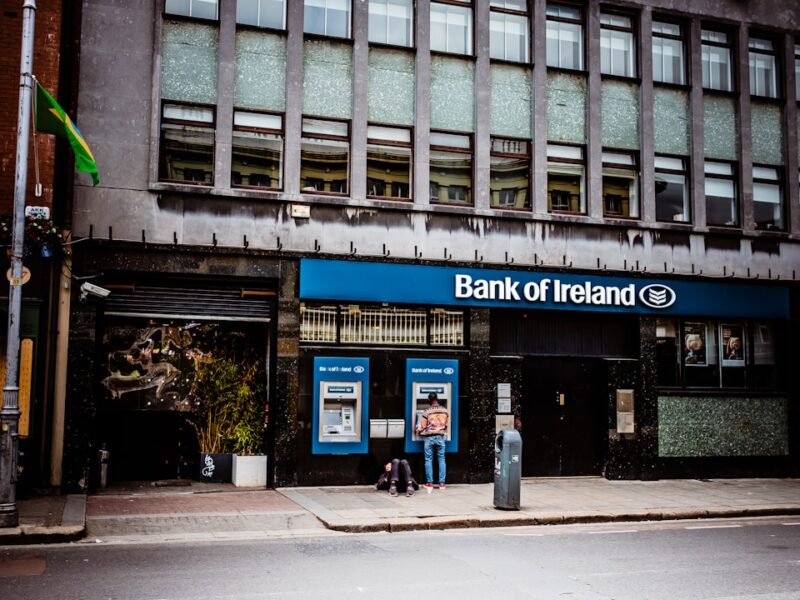IDFC First Bank, a prominent player in the Indian banking sector, offers a range of financial products tailored to meet the diverse needs of its customers. Among these offerings, personal loans stand out as a flexible financial solution for individuals seeking funds for various purposes, such as medical emergencies, home renovations, travel, or debt consolidation. IDFC personal loans are characterized by their competitive interest rates, quick disbursal times, and minimal documentation requirements, making them an attractive option for many borrowers.
The application process for IDFC personal loans is designed to be user-friendly and efficient. Borrowers can apply online through the bank’s website or mobile app, which allows for a seamless experience from application to disbursement. The bank employs advanced technology to assess loan applications swiftly, ensuring that customers receive timely responses.
Additionally, IDFC First Bank emphasizes transparency in its lending practices, providing clear information about interest rates, repayment terms, and any associated fees. This commitment to clarity helps borrowers make informed decisions about their financial commitments.
Key Takeaways
- IDFC personal loans are a type of unsecured loan that can be used for various purposes such as medical emergencies, home renovations, or travel expenses.
- To be eligible for an IDFC personal loan, the applicant must be a salaried individual between the ages of 23 and 58 years.
- The minimum monthly income requirement for IDFC personal loans is Rs. 25,000 for applicants residing in metro cities and Rs. 20,000 for non-metro cities.
- A good credit score and a clean credit history are important factors for IDFC personal loan eligibility, with a minimum credit score of 700 preferred.
- Applicants must have a stable employment history, with a minimum of 2 years of work experience and at least 1 year with the current employer.
- Documents required for an IDFC personal loan application include proof of identity, address, income, and employment, along with bank statements and photographs.
- Factors such as existing debt, repayment capacity, and the loan amount can affect IDFC personal loan eligibility.
- To improve IDFC personal loan eligibility, applicants can maintain a good credit score, reduce existing debt, and provide accurate and complete documentation.
Eligibility Criteria for IDFC Personal Loans
To qualify for an IDFC personal loan, applicants must meet specific eligibility criteria set by the bank. These criteria are designed to ensure that borrowers have the capacity to repay the loan while also protecting the bank’s interests. Generally, applicants must be Indian citizens aged between 21 and 60 years.
This age range is established to ensure that borrowers are in a position to manage their financial responsibilities effectively and have a stable income source. In addition to age and citizenship requirements, IDFC First Bank also considers the applicant’s employment status and income level. Individuals employed in both the private and public sectors are eligible to apply, as are self-employed professionals and business owners.
The bank assesses the applicant’s financial stability and repayment capacity based on their income and employment history. Meeting these criteria is essential for securing a personal loan from IDFC First Bank.
Income Requirements for IDFC Personal Loans

Income plays a pivotal role in determining an applicant’s eligibility for an IDFC personal loan. The bank typically requires borrowers to have a minimum monthly income that varies based on the applicant’s profession and employment type. For salaried individuals, this minimum income threshold is often set at around INR 25,000 per month, while self-employed individuals may need to demonstrate a higher income level due to the perceived variability in their earnings.
The bank evaluates the applicant’s income through various means, including salary slips, bank statements, and income tax returns. This assessment helps IDFC First Bank gauge the borrower’s ability to repay the loan without straining their finances. Additionally, applicants with a stable income history are viewed more favorably, as this indicates reliability and financial responsibility.
Therefore, maintaining a consistent income stream is crucial for those seeking personal loans from IDFC First Bank.
Credit Score and Credit History for IDFC Personal Loans
| Category | Credit Score | Credit History |
|---|---|---|
| Minimum Requirement | 650 | Good credit history with no defaults |
| Preferred Score | 700+ | Excellent credit history with no late payments |
| Impact on Interest Rate | Higher credit score and good credit history may lead to lower interest rates | |
A borrower’s credit score and credit history are critical factors in the personal loan approval process at IDFC First Bank. The credit score is a numerical representation of an individual’s creditworthiness, typically ranging from 300 to 900. A higher score indicates a lower risk for lenders, while a lower score may raise concerns about the applicant’s ability to manage debt responsibly.
IDFC First Bank generally prefers applicants with a credit score of 750 or above, as this reflects a strong credit history and responsible borrowing behavior. In addition to the credit score itself, the bank also examines the applicant’s credit history. This includes reviewing past loans, credit card usage, repayment patterns, and any defaults or late payments.
A clean credit history with timely repayments enhances an applicant’s chances of securing a personal loan. Conversely, a history marked by missed payments or defaults can significantly hinder approval chances. Therefore, individuals seeking personal loans should be proactive in managing their credit profiles to improve their eligibility.
Employment and Stability Requirements for IDFC Personal Loans
Employment stability is another crucial aspect that IDFC First Bank considers when evaluating personal loan applications. Lenders prefer borrowers who have been employed with their current employer for a reasonable duration, typically at least six months to one year. This requirement helps the bank assess the applicant’s job security and overall financial stability.
A stable employment history indicates that the borrower is likely to have a consistent income stream, which is essential for timely loan repayments. For self-employed individuals or business owners, demonstrating stability can be more complex but equally important. The bank may require proof of business continuity and profitability over a specified period.
This could include financial statements, tax returns, and other relevant documentation that showcases the business’s performance. A well-established business with a steady revenue stream can enhance an applicant’s chances of securing a personal loan from IDFC First Bank.
Documentation Needed for IDFC Personal Loan Application

When applying for an IDFC personal loan, applicants must provide specific documentation to support their application. The documentation process is designed to verify the information provided by the borrower and assess their eligibility accurately. Commonly required documents include proof of identity, such as an Aadhaar card or passport; proof of address, such as utility bills or rental agreements; and proof of income, which may consist of salary slips or income tax returns.
In addition to these primary documents, self-employed individuals may need to submit additional paperwork that demonstrates their business’s financial health. This could include profit and loss statements, balance sheets, and bank statements reflecting business transactions. Providing complete and accurate documentation is essential for expediting the loan approval process and ensuring that there are no delays due to missing information.
Factors that can Affect IDFC Personal Loan Eligibility
Several factors can influence an applicant’s eligibility for an IDFC personal loan beyond the basic criteria outlined by the bank. One significant factor is the applicant’s existing debt obligations. Lenders typically assess the debt-to-income ratio (DTI), which compares an individual’s total monthly debt payments to their gross monthly income.
A high DTI ratio may indicate that the borrower is over-leveraged and could struggle to manage additional debt. Another critical factor is the applicant’s age and life stage. Younger borrowers may have less established credit histories or lower incomes compared to older individuals who have had more time to build their careers and financial profiles.
Additionally, fluctuations in economic conditions can impact lending decisions; during times of economic uncertainty or downturns, banks may tighten their lending criteria, making it more challenging for some applicants to qualify for loans.
Tips for Improving IDFC Personal Loan Eligibility
Improving eligibility for an IDFC personal loan involves proactive steps that potential borrowers can take to enhance their financial profiles. One effective strategy is to maintain a healthy credit score by making timely payments on existing debts and keeping credit utilization low. Regularly checking one’s credit report for errors or discrepancies can also help identify areas for improvement.
Another tip is to reduce existing debt before applying for a personal loan. Paying down high-interest debts can lower the DTI ratio and improve overall financial health. Additionally, borrowers may consider applying with a co-applicant who has a strong credit profile; this can enhance approval chances by providing additional security for the lender.
Furthermore, maintaining stable employment and demonstrating consistent income can significantly bolster an applicant’s case for loan approval. Keeping thorough records of income sources and employment history can streamline the documentation process when applying for a personal loan with IDFC First Bank. By taking these steps and being mindful of their financial health, potential borrowers can improve their chances of securing an IDFC personal loan that meets their needs while ensuring manageable repayment terms.
FAQs
What are the eligibility criteria for an IDFC personal loan?
To be eligible for an IDFC personal loan, an individual must be a salaried employee aged between 23 and 58 years, with a minimum monthly income of Rs. 25,000. The individual must also have a minimum work experience of 2 years and should be residing in the current residence for at least 1 year.
What documents are required for IDFC personal loan eligibility?
The documents required for IDFC personal loan eligibility include proof of identity, proof of address, bank statements, salary slips, and income tax returns.
What is the maximum loan amount offered by IDFC for personal loans?
IDFC offers personal loans ranging from Rs. 1 lakh to Rs. 40 lakhs, depending on the applicant’s eligibility and creditworthiness.
What is the maximum tenure for an IDFC personal loan?
The maximum tenure for an IDFC personal loan is 5 years.
Can self-employed individuals apply for an IDFC personal loan?
No, IDFC currently offers personal loans only to salaried individuals. Self-employed individuals are not eligible for an IDFC personal loan.










Comments